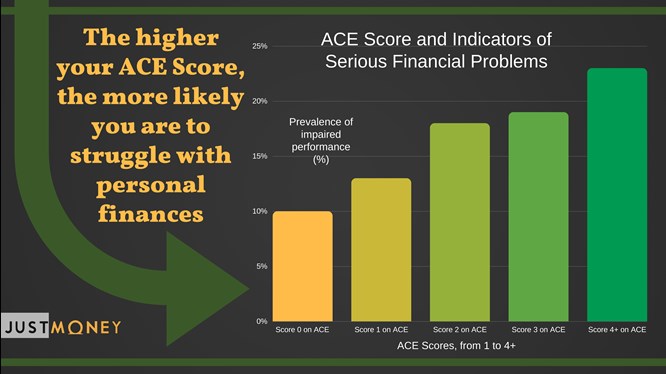Once you kick off your flagship company, you will inevitably have to face the administrative woes of running a business – and this includes paying taxes. As an entrepreneur, how does this affect you?
25 April 2018 · Isabelle Coetzee

Once you kick off your flagship company, you will inevitably have to face the administrative woes of running a business – and this includes paying taxes.
During the budget speech in February, former finance minister Malusi Gigaba admitted that South Africans pay higher corporate taxes than the international standard.
To add to this, South Africa’s tax-to-GDP ratio was 27.1% in 2016, compared to the world average of 14.95% in the same year (click here for more information).
As an entrepreneur, how does this affect you?
Incentivising small businesses
Based on the above, Somaya Khakhi, the project director of tax at the South African Institute of Chartered Accountants (SAICA), believes South Africans have a higher tax burden.
“That said, measures have been taken to incentivise micro and small businesses by allowing favourable capital allowances, and lower or graduated tax rates,” says Khakhi.
“Whilst not all incentives are equally effective, a small business that qualifies for this is still more at an advantage than a business that has to pay tax at the standard rate,” she explains.
Besides this, Khakhi points out that entrepreneurs can also arrange their affairs to minimise their tax liability within the boundaries of the law.
“Therefore, entrepreneurs should educate themselves adequately and use the available incentives to their advantage,” says Khakhi.
What type of incentives are there?
Nico Theron, founder of Unicus Tax Specialists SA, agrees that South Africa has specific tax regimes to cushion the tax exposure for start-up businesses.
This includes the Small Business Corporation (SBC) Tax Regime and the Micro Business Tax Regime.
“The former allows for a tax rate as low as 0%, and the latter only taxes qualifying businesses above R335,000,” says Theron.
According to Jeremy Burman, director of Private Client Holdings, to qualify as an SBC, a company must meet the following requirements:
“The definition of a personal service is extensive and covers most service-orientated as well as professionally-regulated industries (e.g. accounting, education, and engineering). Therefore, only those businesses selling some form of product will qualify,” says Burman.

“In the current tax year qualifying as a SBC will result in a CIT-saving of R95,070 per annum on the first R550,000 of taxable income,” says Burman.
Madelein Grobler, project manager of tax at SAICA, believes this encourages growth in the small and medium business space.
She adds that an entrepreneur, as an employer, may also consider whether a learnership allowance will be granted.
“This provides for an allowance of R20,000 to R40,000 (depending on the level of education) per learnership agreement that was entered into after 1 October 2016,” says Grobler.
Another way entrepreneurs can reduce their tax burden is to make use of The Employment Tax Incentive (ETI), which runs from January 2014 to February 2019.
“This encourages private businesses to employ young work seekers.
“It’s an additional benefit that may be available to ‘eligible’ employers, which effectively reduces their tax/PAYE liability,” she explains.
What about larger businesses?
According to Grobler, taxation varies depending on the type business entity. She puts forward the following three examples:
“For income tax purposes, a sole proprietorship and partnership will be taxed as a natural person with sliding scale rates, ranging between 18% and 45%, depending on the taxable income,” says Grobler.
“A company, on the other hand, is taxed at a flat rate of 28% on its taxable income,” adds Grobler.
How are these taxes paid?
Entrepreneurs are subjected to the specific taxes unique to their business. However, there are three main types of taxes they likely need to pay: Income Tax, VAT, and Employee’s Tax.
Each of these need to be paid to the South African Revenue Service (SARS) through eFiling or directly at its offices.
Grobler explains how to submit the following types of taxes:
Income Tax
For a sole proprietorship or partnership, an entrepreneur will be required to submit an ITR12, which is the annual income tax return for the period 1 March to 28 February of the following year. It needs to be filed within Tax Season:1 July to end of January.
If the entrepreneur operates his/her business via a company, the company would need to submit an ITR14, i.e. an annual income tax return for its financial year. The ITR14 needs to be submitted 12 months after the end of the company’s financial year.
The entrepreneur will be liable to pay provisional taxes in both instances. Provisional tax is the method of paying the income tax that is due to SARS during the course of the financial year, instead of one large amount at the end of the financial year.
Value-Added Tax (VAT)
If the entrepreneur is registered for VAT, a VAT201 return form must be submitted to SARS for an allocated tax period – most likely every 2 months. These payments must be made by the 25th of the month after the tax period has ended.
Employees’ tax
If the entrepreneur has employees, he/she may also be liable to register for and pay employees’ tax. This include Pay as you Earn (PAYE), Skills Development Levy (SDL) and Unemployment Insurance Fund (UIF).
The entrepreneur must submit an EMP201 and make payment by the 7th day of the month following the month when the employees were paid.
Khakhi explains that if the entrepreneur is registering for PAYE through SARS, then he or she must register for UIF as well.
She adds that alternatively, if the entrepreneur does not need to register for PAYE or SDL, then he or she can register UIF directly with the Department of Labour (DoL).
What’s the bigger picture?
“The more entrepreneurs we have, the more opportunities we create for employment which has a positive impact on our economy. If everyone works together to grow the economy, it would eventually affect tax rates in the long run,” says Khakhi.
Burman also believes entrepreneurs have an important role to play in the South African economy.
“They provide much needed employment, not only for themselves but also potentially providing employment and training for others,” says Burman.
“Besides growing the economy, tax contributions assist in providing support to social grants, education, healthcare and infrastructure to South Africans,” he concludes.
Free tool

info@justmoney.co.za
4th Floor, Mutual Park, Jan Smuts Drive,
Pinelands, Cape Town, 7405
© Copyright 2009 - 2025 · Powered by NCRCB29
Terms & Conditions
·
Privacy Policy
·
PAIA Manual
View your total debt balance and accounts, get a free debt assessment, apply for a personal loan, and receive unlimited access to a coach – all for FREE with JustMoney.